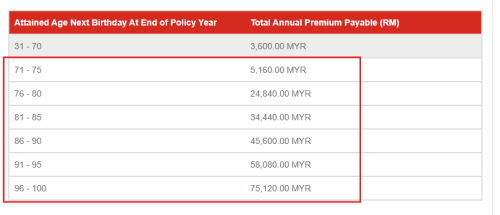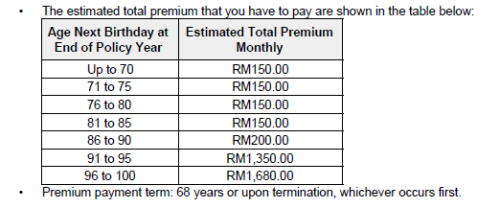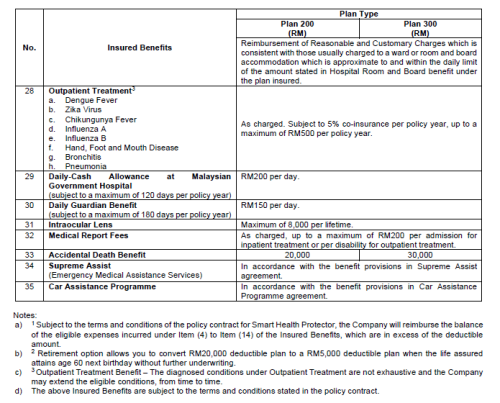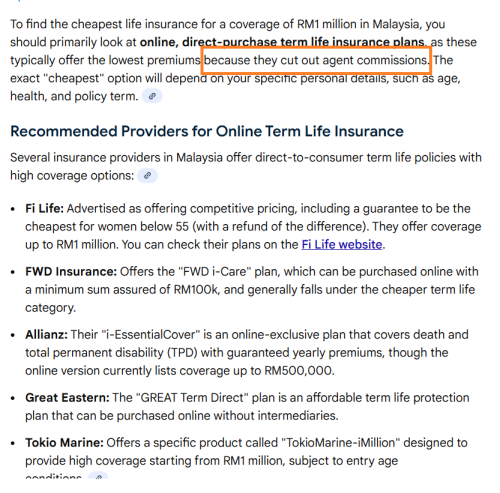QUOTE(MUM @ Dec 23 2025, 05:57 PM)
Let them investigate
Let them delay the claims processing.
Let them suspects you are a cheat.
In the end, if they cannot find a fault in you, ....even if you die, ..your beneficiaries will still get the payout and enjoy the proceeds.
If you dont die, cannot work, still do the pay n claim for the treatment of your illness, still wait for them to completes the claim process and starts the reimbursement of your claims, ......then, too bad lor, ....
This summary sounds about right..... Let them delay the claims processing.
Let them suspects you are a cheat.
In the end, if they cannot find a fault in you, ....even if you die, ..your beneficiaries will still get the payout and enjoy the proceeds.
If you dont die, cannot work, still do the pay n claim for the treatment of your illness, still wait for them to completes the claim process and starts the reimbursement of your claims, ......then, too bad lor, ....
to note this small part: "...even if you die, ..your beneficiaries will still get the payout and enjoy the proceeds."
this applies to life insurance or CI etc... not true if it is medical bill, because the chap had to pay out of his own pocket... so it is his own money


 Dec 23 2025, 06:52 PM
Dec 23 2025, 06:52 PM

 Quote
Quote









 0.0190sec
0.0190sec
 0.33
0.33
 6 queries
6 queries
 GZIP Disabled
GZIP Disabled